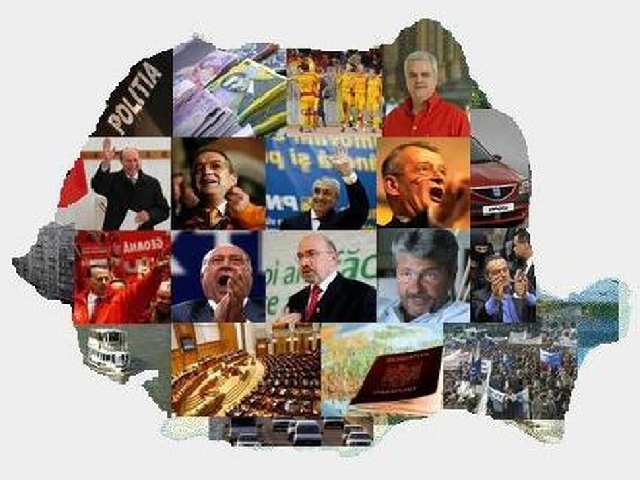September 22-28
A selection of the week's highlights in Romania.

România Internațional, 28.09.2013, 13:00
Developments in the Rosia Montana case
The controversial draft law regarding gold and silver mining in Rosia Montana, in central Romania, is still in the focus of Romanian public attention. Prime Minister Victor Ponta believes that Romania should green light the project and benefit from the advantages it entails, provided the environment is protected. The special parliament commission on Rosia Montana has continued hearings in Bucharest, and some of its members traveled to the area on a fact-finding mission. The bill, which would allow a Canadian company to exploit silver and gold ores using a cyanide-based technology, triggered large-scale protests in Bucharest and elsewhere in Romania and abroad. Protesters have warned about the negative impact of that technology on the environment. On the other hand, though, the supporters of the project say that mining in the area would solve major social and economic issues.
The stray dog law was promulgated by the President of Romania
The Romanian Constitutional Court has given the green light to the stray dog law, in the form in which it was adopted in Parliament on September 10th, ruling that the law does not contain unconstitutional provisions. The law was also promulgated by the Romanian President Traian Basescu, triggering discontent among animal activists. The law was brought to parliament under an emergency procedure and passed immediately, after a four year old boy was killed by stray dogs near a park in Bucharest. Under the new law, dogs can be euthanised if they are not claimed or adopted within 14 working days, during which time they are kept in shelters. Still, euthanasia is not compulsory, and local authorities may decide to keep them in shelters indefinitely, if they have the necessary resources.
Romania and the Common Agricultural Policy
In Brussels, EU officials reached an agreement on the Common Agricultural Policy for the coming years. The document contains clear provisions regarding the money that the EU member states, including Romania, may get from the agriculture budget and the level of subsidies for farmers until 2019. Also, EU countries will be able to provide more support to disadvantaged areas and young farmers will be encouraged. The agreement also provides for a lower contribution of the EU Member States to the programs co-funded from European funds. The Romanian Agriculture Minister Daniel Constantin says the decisions made under the agreement are good.
Daniel Constantin: “It is good that the EU funding rate was increased from 75% to 80%, because this translates into a smaller effort on the part of the Member States. Therefore, the money we have in the national budget can go to other investments, and contribute with only 15% as co-funders. It is also possible, as long as Romania has an international agreement with the IMF and the EC, to increase the co-funding rate to 95%.”
In another move, minister Daniel Constantin said his ministry envisages measures to support Romanian milk producers, after the elimination of milk quotas in the EU, starting 2015.
France claims Romania and Bulgaria do not meet the necessary requirements to join Schengen on January 1st 2014
Romania expects France to act in the spirit of bilateral strategic relations, and to take into consideration the fact that Bucharest meets the Schengen accession requirements. The statement was made by the Romanian Foreign Ministry, after the French Government stated it opposed Romania’s and Bulgaria’s joining Schengen on January 1st, 2014. The French authorities say the two countries do not meet all the conditions for their accession to the free-movement area. Bucharest has stated that there is no connection between the issue of Roma integration and Romania’s Schengen accession, and has called on Paris to avoid bringing such issues into the electoral debate.
Romanian Sorin Ducaru is appointed the new head of the NATO Emerging Security Challenges Division
Romania’s Ambassador to NATO, Sorin Ducaru, is the new head of the NATO Emerging Security Challenges Division. This is the highest office held by a Romanian within NATO. Sorin Ducaru has presented the major issues he will focus on, including the fight against cyber-crime and terrorism, energy security, NATO’s nuclear policy and preventing the proliferation of weapons of mass destruction. The division was set up in 2010 with the aim of solving security threats against the Alliance. A diplomat by trade, Sorin Ducaru was for seven years the head of the Romanian diplomatic mission to NATO, Romania’s ambassador to the US and the UN.



























